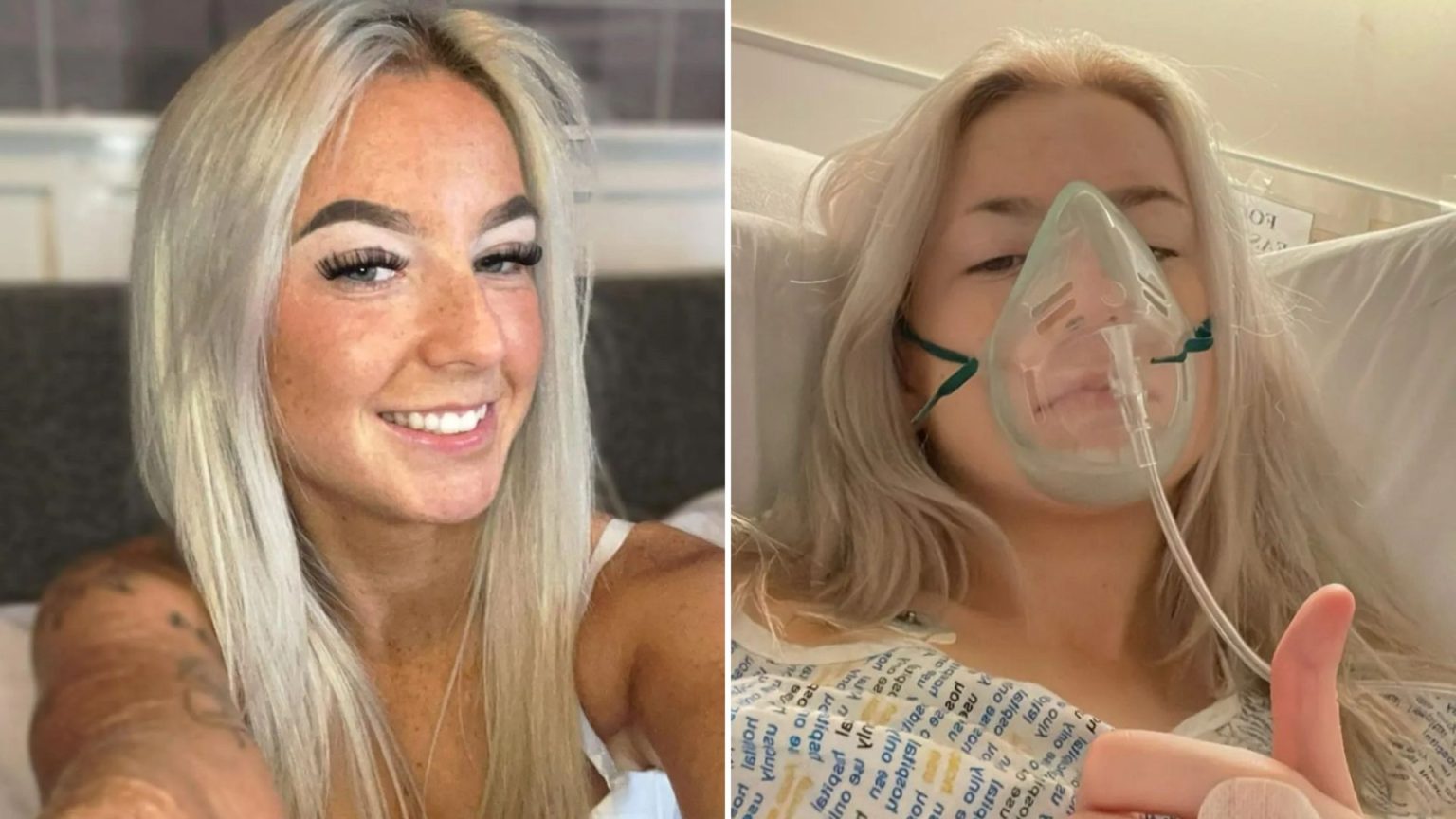Jemma Bruce, a 22-year-old woman from Irvine, Scotland, has endured years of debilitating pain due to recurring benign ovarian tumours. Diagnosed initially at 13, she experienced excruciating stomach pain, leading to the discovery of her first tumour. While it didn’t require immediate removal, it marked the beginning of a protracted struggle with her reproductive health. At 21, a second tumour appeared, causing even more intense pain, including severe back pain and near-constant vomiting. Despite her persistent pleas, doctors at University Hospital Crosshouse opted for a watch-and-wait approach, refusing surgery unless her symptoms drastically worsened. This decision, Jemma claims, left her suffering needlessly for nine months. The pain became so unbearable that she was forced to abandon her social work studies and became largely housebound, relying on a hot water bottle for comfort, which ironically left her with scars. Her life, she felt, was on hold.
The turning point, albeit a grim one, came when the second tumour began to compromise the blood supply to her ovaries and fallopian tubes. This necessitated emergency surgery, a procedure Jemma believes was avoidable had her earlier concerns been heeded. The experience left her with a deep-seated mistrust of NHS doctors, contributing to anxiety and a reluctance to seek medical attention even when needed. This distrust stems from a feeling of being dismissed and silenced, a concern she believes resonates with many women facing similar health challenges.
Now, facing the possibility of a third ovarian mass, indicated by the resurgence of familiar agonizing pain, Jemma has decided to take matters into her own hands. Frustrated by the NHS’s reluctance to proactively address her condition, she is seeking private surgery to remove her ovaries and fallopian tubes, a procedure known as a salpingo-oophorectomy. This decision, while offering a potential solution to her chronic pain, comes at a significant financial cost. The procedure, along with consultations and aftercare, is estimated at £7,500, a sum far beyond her means as someone living on disability benefits.
To finance this life-altering surgery, Jemma has launched a GoFundMe campaign, hoping to raise the necessary funds to reclaim her life. She envisions a future free from the relentless pain and the constant fear of recurrence, a future where she can resume her studies, pursue her dream of becoming a social worker, and simply enjoy the normalcy of life as a 22-year-old. The surgery, while carrying the emotional weight of precluding natural childbirth, represents a necessary step towards a pain-free existence and a sense of control over her own body. She has accepted this consequence, partly influenced by her role as a caring older sister to her one-year-old brother.
Jemma’s story highlights the struggle many women face in navigating the healthcare system, particularly when dealing with chronic pain conditions. Her experience underscores the importance of patient advocacy and the need for medical professionals to listen attentively to their patients’ concerns. The decision to seek private care, while a testament to her determination to find relief, also reveals the limitations and potential failings of a public healthcare system that sometimes struggles to adequately address the needs of individuals like Jemma. Her fundraising campaign represents not only a plea for financial assistance but also a call for greater understanding and empathy within the medical community.
NHS Ayrshire and Arran, where Jemma received her treatment, has responded with a statement expressing regret over her dissatisfaction with their care. Citing patient confidentiality, they declined to comment on the specifics of her case but encouraged any patient with concerns to contact them directly through their complaints procedure. While this acknowledges the importance of patient feedback, it doesn’t directly address the systemic issues that might contribute to experiences like Jemma’s. Her story remains a powerful reminder of the need for ongoing dialogue and improvement within healthcare systems to ensure that all patients, especially those with complex and chronic conditions, receive the care and respect they deserve. Her hope is that by sharing her story, she can not only raise the funds for her surgery but also raise awareness of the challenges faced by women with similar conditions and advocate for a more patient-centered approach to healthcare.




